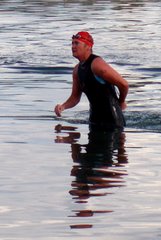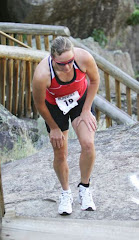
Ok. I'm on a soapbox. For anyone that reads this... UNDERSTAND who ATHLETIC trainers are and what we do. (We are not personal trainers, paramedics, EMTs or bobblehead dolls). Any by the way.. EVERY HIGH SCHOOL NEEDS AT LEAST ONE!!!! And yes.. that's me up there with a former bball player who decided to tango with an opposing player!) Cool pic, huh?
All certified or licensed athletic trainers must have a bachelor’s or master’s degree from an accredited college or university in order to practice athletic training. Degrees are complementary to accredited athletic training majors and include established academic curricula. Athletic trainers’ bachelor’s degrees are in pre -medical sciences, kinesiology, exercise physiology, biology, exercise science or physical education. Professional content of academic coursework for athletic trainers includes study includes risk management and injury prevention, pathology of injury and illness, orthopedic examination and diagnosis, acute care of injuries and illnesses, administration of therapeutic modalities, rehabilitation, pharmacology, psychosocial interventions, nutrition, and health care administration. Academic programs are accredited through an independent process by the Commission on Accreditation of Athletic Training Education (CAATE).
Once students complete their college coursework and graduate from an CAATE-accredited institution, they become eligible to sit for their national exams. The independent Board of Certification Inc. (BOC) nationally certifies athletic trainers. Athletic trainers must pass an examination and hold an entry-level bachelor’s or master’s degree to become a certified athletic trainer. To retain certification, credential holders must obtain 75 hours of medically related continuing education credits every three years and adhere to Standards of Professional Practice.
Most athletic trainers are not satisfied with an undergraduate education. Nearly 70 percent of ATC credential holders have a master’s degree or higher advanced degree. Reflective of the broad base of skills valued by the athletic training profession, these master’s degrees may be in athletic training (clinical), education, exercise physiology, counseling, health care administration or health promotion.
Once certified, athletic trainers work in a variety of settings. Athletic trainers are most noticeable in their positions with high school, college, and professional sports teams, but they also are working in rehabilitation centers, alongside physicians, in business and industry settings, and even in the military. Athletic trainers don’t just work with athletes, either. Anyone who is physically active can benefit from the expertise of an athletic trainer.
While practice act oversight varies by state, athletic trainers practice under state statutes recognizing them as health care professionals similar to physical therapists, occupational therapists and other health care professionals.




No comments:
Post a Comment